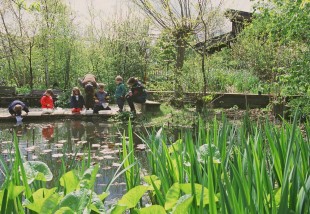Previous Events
Wetland Futures Conference 2015

Partner Event to be held on
14 October -15 October 2015
The Priory Rooms, Quaker Meeting House, 40 Bull St, Birmingham, West Midlands B4 6AF
Bridging the conservation gap between freshwater, saltwater and transitional wetlands
Clean beaches, fertile farmland and wild wetlands sound like three very different aspirations, but according to the Wildfowl & Wetlands Trust (WWT) results across all three could be improved at no net cost.
WWT has identified that the diverse group of interests that manage land and sea in the UK often work at odds with each other. They hope to bring them together to find solutions that will save them time and money achieving their goals.
The group, which includes farmers, ports, fishery authorities, wildlife charities, local authorities and government agencies, will come together at WWT’s Wetland Futures conference this October, for the first ever attempt to address the issue.
To find out more and book a place, click here.
The event will be attended by interested parties from government agencies and departments, conservation NGOs, water companies, major landowners and industry. You will be able to forge new relationships, discuss the issues and explore new ideas.
You will hear inspiring speakers presenting the latest research, results and experience from larger scale landscape projects on nutrient pollution, flooding and coastal squeeze and invasive non-native species. You will be invited to comment and discuss how we can communicate better and manage the multiple stressors involved in our decision making. With plenty of opportunity for discussion this will offer the chance to network with a whole range of sectors.
WWT’s Conservation Policy Officer Hannah Freeman said:
Visit the coast on a sunny bank holiday and it’s obvious that we love spending time by the water. But each year, it takes a huge effort to keep our beaches clean and healthy for everyone to enjoy on a day out and the challenge is increasing.
Heavy storms are on the increase because of climate change. A storm can wash away a beach, but it will also wash soil and fertiliser downstream into coastal waters where it can cause dangerous algal blooms. The flip side is that as the coast is washed away, farmland inland is put at risk of flooding with sea water.
This is just one example of how these problems are connected, but affect different people in different ways. We believe we can find innovative solutions by bringing those people together at WWT’s Wetland Futures.